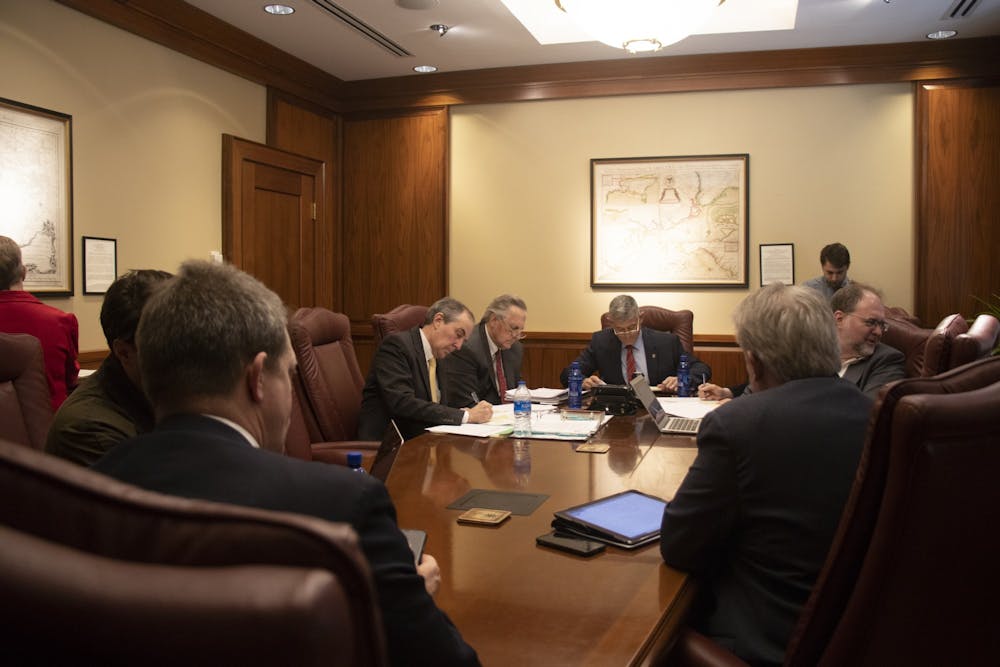The board of trustees held a phone conference call meeting Friday and was given an information-filled update on the university’s situation with the coronavirus.
According to university President Bob Calsen, there are 10 students who are confirmed to have the virus. Three of them live in Columbia, six are out of state and one is out of country in France. There is also one test pending on the Greenville campus. There are currently 11 students quarantined on campus and nine off campus, with one of the 11 showing symptoms.
For faculty and staff, there is one confirmed case that lives in Columbia. Two faculty members were showing symptoms and had been to a zone where the virus was present. Fifteen faculty and staff members are in self-quarantine in Columbia, and five are symptomatic.
Caslen presented three hypothetical scenarios where students returned to the university. They were created with help from the School of Public Health. Each scenario had confirmed cases of the coronavirus ranging from the hundreds to the thousands if students were brought back from spring break to campus.
“When we first started looking at this and made the decision to extend spring break by a week and move two weeks online, it was from a very rough model that said that if we brought everybody back immediately ... from their spring break, we would have 100% probability that there would be infected students. We're already confirming that because we now have 10, and within a short period of time, 30% of the student [body] would be affected,” Caslen said.
30% of the student body, which is 32,000, is almost 10,000 cases, according to Caslen.
Caslen said it isn’t “feasible” to have a commencement event in May, but the university is seeking alternatives. Caslen said, as an example, the university could designate days in July or August, basing these dates on the assumption the virus is under control by then.
“We're going to look at other options. We recognize this is an emotional time for students and families. It's a time to celebrate accomplishments and achievement, and we want to preserve that,” Caslen said.
When discussing finances, Caslen said the biggest refunds for the university would be tuition. These refunds would kick in when a class cannot be put online and the student is unable to complete that course for credit.
Ed Walton, chief financial officer of the university, discussed cost cutting and relief that the university might receive on the financial side. Cutting costs is one method to keep the university going, but Walton said federal aid might be needed as well.
“In the last recession, we had the tools of price increases and increased enrollments. We have neither of those now. To receive large budget cuts during a recession from the state would be very, very, very difficult to make up. So we're out there already working with the state of South Carolina and our federal delegation to see if we can get some relief that won't be in terms of just having to constantly cut costs,” Walton said.

